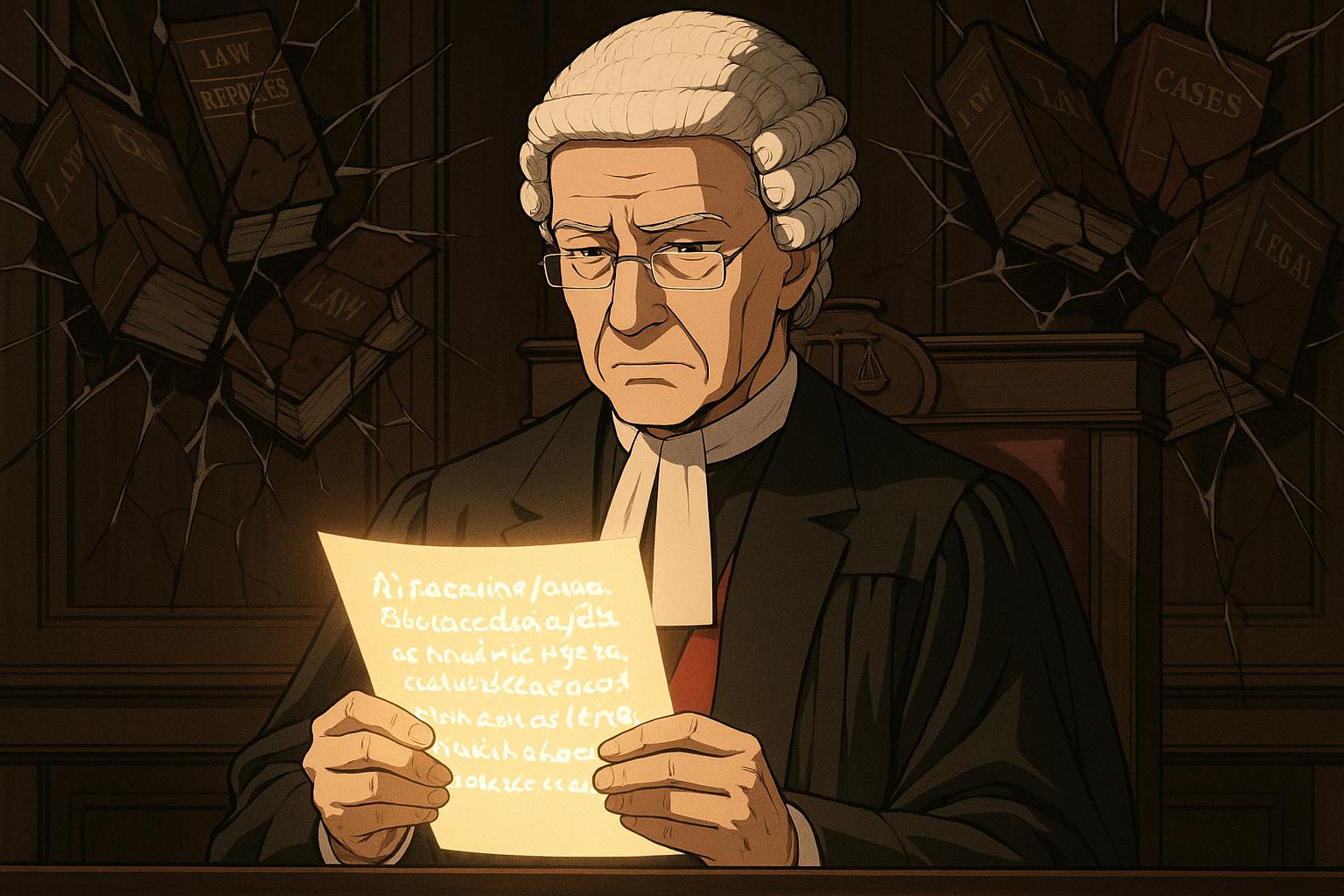In a significant warning regarding the integrity of legal proceedings, a UK judge has highlighted the alarming misuse of artificial intelligence (AI) in the courtroom, following incidents where lawyers cited fictitious cases generated by AI technology. High Court justice Victoria Sharp underscored the dire implications this trend poses for the justice system, cautioning that lawyers may face prosecution if they fail to verify the accuracy of their research.
Sharp, alongside fellow judge Jeremy Johnson, addressed these issues in their ruling, which stemmed from concerns raised by lower court judges. They noted that some lawyers appeared to be employing generative AI tools to draft legal arguments and witness statements without subsequent verification, leading to the presentation of misleading information in court proceedings. The judges referred to instances where unreliable data could ultimately undermine public confidence in the judicial process.
In one such notable instance, during a £90 million lawsuit involving the Qatar National Bank over an alleged financing agreement breach, a lawyer cited 18 cases that, upon investigation, were found to be non-existent. The client, Hamad Al-Haroun, expressed regret over the misinformation, attributing the mix-up to the AI tools he used rather than his solicitor, Abid Hussain. Justice Sharp remarked that the reliance on a client for accurate legal research was “extraordinary,” underscoring the responsibilities lawyers bear in ensuring the veracity of the information they present.
In another case concerning a housing claim against the London Borough of Haringey, barrister Sarah Forey was implicated for citing five fake cases. While Forey denied employing AI in her arguments, Sharp noted that her explanation of the circumstances was insufficiently coherent, raising further concerns about the validity of the submissions made to the court.
Sharp referred both lawyers to their professional regulatory bodies, indicating that while the cases did not warrant severe sanctions, they highlighted a troubling trend. The judge cautioned that presenting false information could be deemed as contempt of court or, in more serious instances, perverting the course of justice—a charge that can carry a sentence of life imprisonment.
Despite the cautionary tales linked to AI usage, Sharp acknowledged the potential benefits of this technology in the legal field, referring to AI as both a "powerful technology" and a potential "useful tool." However, she emphasised the necessity of maintaining strict oversight and a regulatory framework to uphold professional and ethical standards, asserting that the integrity of the justice system hinges on such measures. By prioritising accuracy and accountability, courts can maintain public trust and uphold the fundamental tenets of justice.
As the legal landscape continues to evolve with advances in technology, the pressing need for vigilance and regulation in the application of AI in legal contexts has never been more apparent. The balance between embracing innovation and safeguarding the principles of justice remains a critical challenge for the legal profession.
📌 Reference Map:
Source: Noah Wire Services
